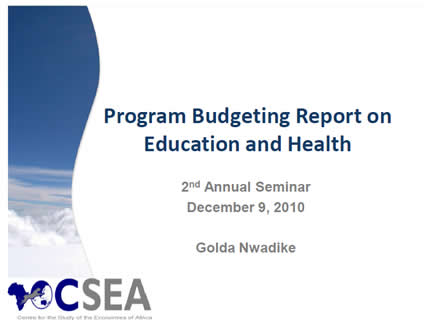Author:Golda Nwadike
Publication Date:December, 2010
Document Size:21pages
Program Budgeting Analysis is designed to provide betterunderstanding of Governments expenditure pattern. It alsoidentifies administrative outlets of spending for each of thesectors in the federal budget and presents, in a comprehensiblemanner, a general overview of governments expenditure perfacility level and per sector.This presentation presents findings that relate to the FederalGovernment spending on Education and Health.

